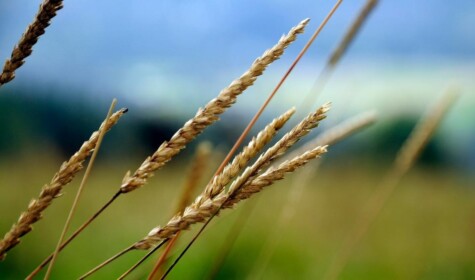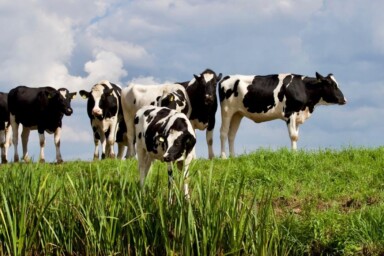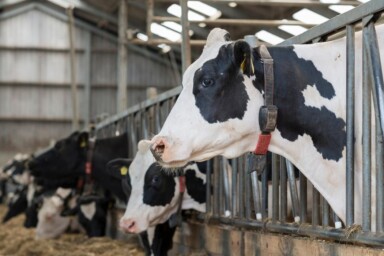Yesterday’s announcement by the UN Secretary General about the critical urgency of addressing climate change should remind us all of the absolute necessity of transforming our food production systems, shifting them away from a predominantly chemically based approach towards a system based on biological principles. I believe that only in this way will we be able to avert irreversible climate change and biodiversity loss.
This leads to the question, is Defra responding adequately? From the evidence of this week’s announcement by George Eustice and his team about the framework for post-Brexit agricultural policy, I feel the answer may be, not yet.
From my perspective, Defra seems to be sitting on the fence on the critical issue of whether to pursue a ‘land sparing’ or ‘land sharing’ agenda. I suspect that unless there is a national debate about which approach should be adopted, Defra will likely back the land sparing approach by default by failing to sufficiently fund farming and food production systems that work in harmony with nature, not least because such an approach is backed by heavyweights such as Sir David Attenborough and George Monbiot. Just to be clear, I am a huge fan of Sir David, but I also happen to think he got it wrong on his recent Netflix documentary when he advocated emulating the Dutch, who have adopted what could broadly be termed sustainable intensification, using hydroponic methods of plant production enhanced by technology.
From my own experience, the alternative approach, often referred to as land sharing, is perfectly capable of producing adequate yields of highly nutritious food, while also reducing emissions, sequestering soil carbon and significantly enhancing wildlife and biodiversity across the whole farm. I also have no doubt that, with additional research, yields from biologically based food production systems could be further enhanced. From my perspective, this is so much better than a piecemeal approach which intensifies food production on the best land whilst conserving nature through rewilding in the less favoured areas, which would definitely include my farm!
Critics of this ‘land sharing’ approach will likely ask the following questions:
Could it feed the world? Would food prices have to rise, and would UK farmers be undercut by lower standard imports?
Taking the first question, yes, it could feed the world, but only if we massively reduce food waste, which is currently up to 50% of all food produced. We would also need to change our diets to match the output of regenerative farming systems. Controversially, such diets would not be as meat-free as some are advocating, since sustainably managed livestock, mainly grass-fed ruminants, will play a key role in the mixed regenerative food systems which would replace the present arable monocultures.
To the second question, yes, the headline price of food would go up, but as our Hidden Cost of UK Food report shows, current food prices are dishonest in the sense that they do not include the true costs related to the destruction of natural capital, including soil and biodiversity, pollution or the negative impact on public health, which we are actually already paying for in other ways. So the ‘cheap food‘ premise is actually false and dishonest!
In answer to the third question, about international trade, we have been advocating the launch of an internationally harmonised framework for measuring farm sustainability which we believe should be introduced at COP 26 and the 2021 UN Food Systems Summit. Such a framework would set a sustainability bar for all tariff-free trade in food, similar to what was achieved at the COP 21 Paris Agreement in relation to emissions. This would mean that food producers operating to lower standards would be required to pay tariffs.
We have been arguing that Defra should require an annual audit of key sustainability impacts for all producers entering the post-Brexit scheme, including soil, water, emissions, energy and resource use, biodiversity, nutrient cycling, crop and livestock health, and social and cultural impacts. Only when the impacts of these outcomes are comprehensively measured in this way will the public be able to hold Defra to account for the delivery of the public goods that they rightly claim should stem from future tax-payer support.
The land sparing advocates are also driving a shift towards so-called ‘sustainable’ intensification and technological approaches.
It seems extraordinary to me that, despite the growing scientific acceptance that the human gut microbiome has a crucial role in regulating our physical and mental health, this understanding is being completely abandoned when it comes to plant nutrition.
The soil is effectively the stomach of the plant. All plants spend a third of their photosynthetic energy on exuding sugary sap into their root zones to nourish a symbiotic community of bacterium and fungal organisms upon which their nutrition and digestion depends. This is no evolutionary accident, it is a wonderful example of symbiosis which connects the soil, plant and human digestion to the benefit of the health of all. If chemically based agriculture continues to compromise the soil microbiome, we will have to rely on technological replacement and it seems to me that the chances of science developing a system which could mimic the brilliance of this beautifully evolved soil digestive organ in just a few short years are vanishingly small.
By the way, this substitution is already happening, albeit under the radar screen of public awareness. It is a little-known fact that, aside from organic, virtually none of the salad crops now sold by supermarkets are grown in soil. Instead, they are fed by chemicals in solution, soaked up from a so-called ‘substrate’ (which is really just glorified blotting paper). This hydroponic system by-passes the immensely complex soil-based digestive process, as described above, which plants have evolved over millions of years, and by doing so is very likely to compromise the nutritional integrity and value of the foods we eat, with long-term implications for human health.
This approach is being promoted under the banner of ‘sustainable intensification’, a term that in our opinion can only be justified if it entails a switch from chemically to biologically based farming systems. Otherwise, it’s an oxymoron, in other words, a cleverly dressed up technical term to justify slightly modified business as usual, namely the perpetuation of unsustainable chemically based agriculture.







